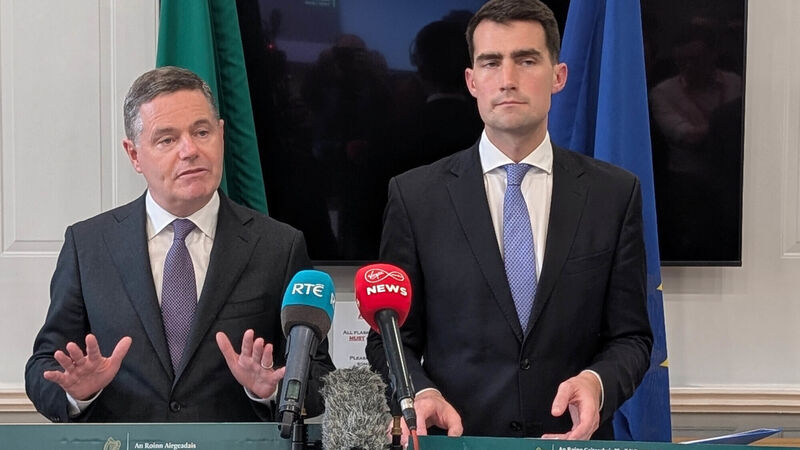College fees to be cut by €500 as Budget 2026 talks go down to the wire

Finance minister Paschal Donohue and public expenditure minister Jack Chambers at a media briefing on the latest exchequer returns before Budget 2026. Picture: Cillian Sherlock/PA
Budget 2026 talks will go to the wire on a number of issues, with insiders saying that the process has been "gruelling".
However, college fees will be permanently cut by €500 per year in Tuesday’s budget after a day of long negotiations.














